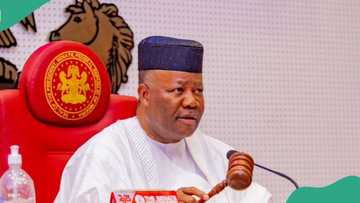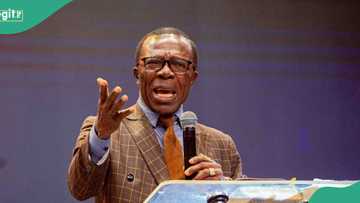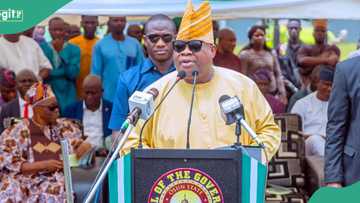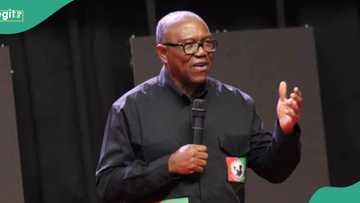2027: Former Nigerian President Blows Hot, Explains Why INEC Vote Count Can Not Be Trusted
- Former President Goodluck Jonathan expressed concerns over the reliability of Nigeria’s vote count, citing the presence of 'ghost voters' as a major issue affecting election credibility
- He urged INEC officials to prioritize integrity, stating that those facing political pressure to manipulate results should resign rather than compromise democracy
- Jonathan criticized the growing regional influence in Nigeria’s elections and emphasized the need for stronger electoral systems to prevent manipulation and ensure credible outcomes
CHECK OUT: Education is Your Right! Don’t Let Social Norms Hold You Back. Learn Online with LEGIT. Enroll Now!
Former Nigerian President, Goodluck Jonathan, has voiced strong concerns over the reliability of vote counts in the country’s elections.
Legit.ng reports that Nigeria is gearing up for another crucial election period in 2027, with political parties strategizing, candidates emerging, and voters anticipating a decisive moment for the nation’s future.
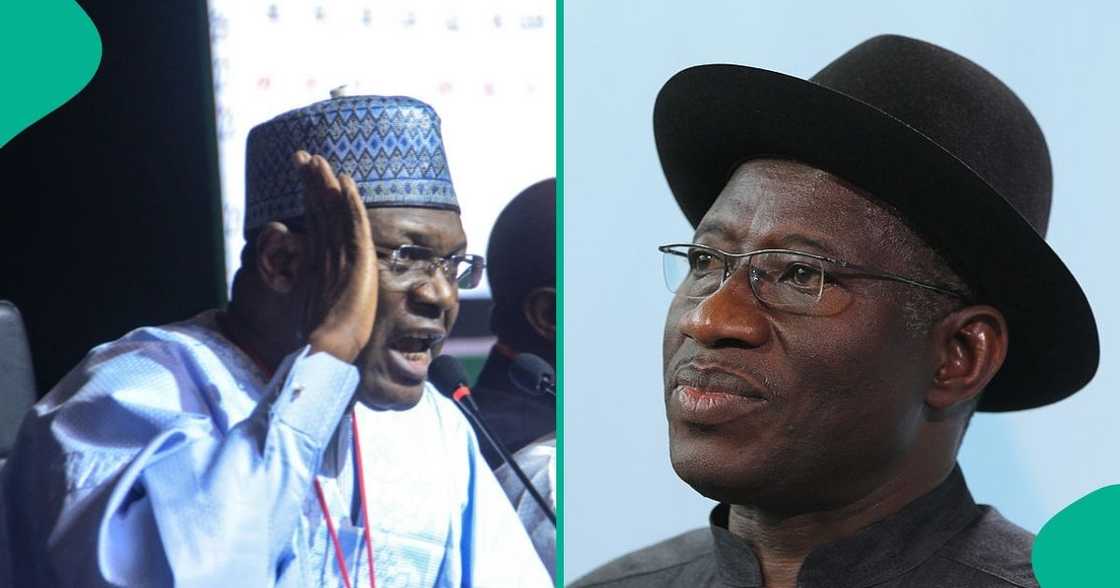
Source: Getty Images
As preparations intensify, key issues like electoral credibility, security, and governance reforms are expected to shape the political landscape, setting the stage for a highly contested race.
Speaking at the YIAGA Africa Reflection Conference on Democratic Elections in West Africa, held in Abuja on Tuesday, Jonathan stated that Nigeria’s electoral system is plagued by inaccuracies due to the presence of what he termed as 'ghost voters.'
“In Nigeria, you can’t get an accurate count of votes because I believe that we have too many ghost voters,” Jonathan remarked.
INEC officials should uphold integrity or resign
Jonathan stressed that officials of the Independent National Electoral Commission (INEC) must prioritize integrity in managing elections.
He argued that electoral commissioners and the INEC chairman should step down rather than succumb to political pressure to manipulate election outcomes.
“We must have credible people. From what former INEC Chairman Attahiru Jega said, political leaders who are so domineering will pressurize you to do what is wrong; you should be able to resign and leave. You should be able to resign and walk away, please,” he urged.

Read also
"Search for relevance": UK PM Starmer publicly mocks Badenoch for overrating her importance
He further insisted that without individuals willing to uphold democratic values in electoral bodies, Nigeria’s democracy would remain flawed.
“If we don’t have this kind of people, then we are in trouble. I don’t want any INEC official to say they were pressurized.
"If you accept the role of INEC Chairman or Commissioner, then you should be prepared to say, ‘If I’m pressured to do what is wrong, I will step aside for the sake of democracy,’” he stated.
GEJ speaks on challenges in electoral system and regional bias
Jonathan also criticized the regional influences that shape Nigeria’s electoral process, arguing that they undermine efforts to elect capable leaders.
He noted that biases are deeply entrenched in the system, extending even to religious groups, Punch reported.
“Sometimes, when I listen to predictions from religious leaders, their forecasts tend to lean towards regional interests. When the electoral process becomes this regionalized, we will continue to face serious challenges,” he explained.
Strengthening electoral systems for credibility
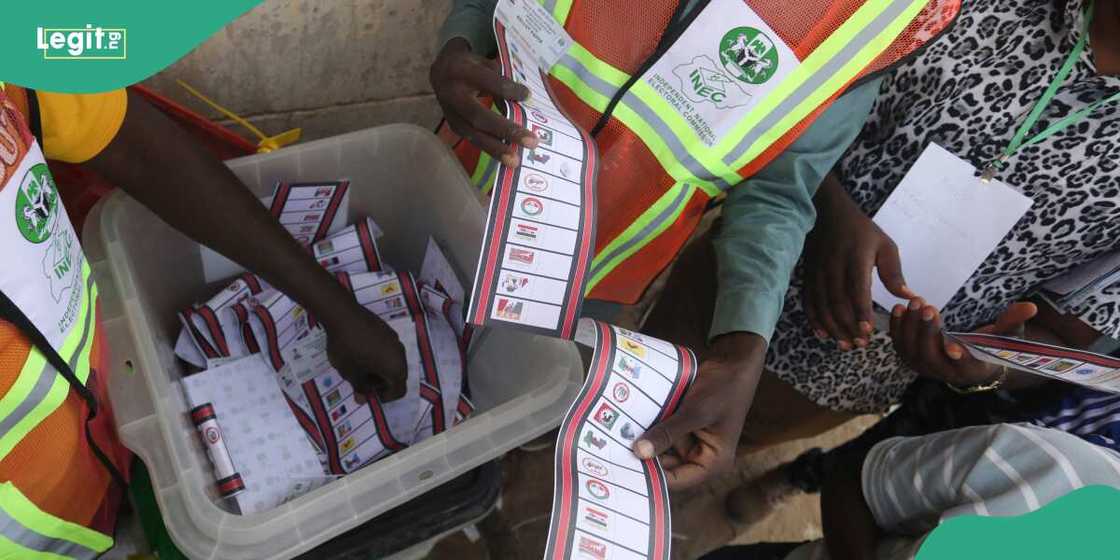
Source: UGC
The former president advocated for a robust electoral system that ensures credible elections by preventing manipulation.
He argued that only when both political parties are strong and the system is foolproof will genuine votes count, Vanguard reported.
“When both parties are strong, and the system cannot be manipulated, only real human beings will cast their votes, and their votes will count,” he asserted.
He further stressed the need to improve voter registration and other electoral processes to enhance democracy.
“If our electoral system is not refined to ensure voter cards function effectively, then what exactly is so great about democracy?” he questioned.
Lessons from other West African nations
Jonathan reflected on recent elections in Nigeria and other West African nations, noting that despite technological advancements such as the Bimodal Voter Accreditation System (BVAS) and the Results Viewing Portal, Nigeria’s 2023 general elections were marred by logistical issues, delayed voting, violence, and technical glitches.
Comparing Nigeria’s elections to those in Ghana, Liberia, and Senegal, he observed that countries with less reliance on technology often experienced smoother elections.
“Ghana, despite using limited technology, successfully conducted elections and ensured a peaceful transition of power,” he said.
He cited Liberia’s recent election, in which former President George Weah conceded defeat to Joseph Boakai in a closely contested runoff.
“This demonstrated a positive example of democratic transitions in the region,” he added.
In Senegal, despite pre-election tensions, the electoral process eventually unfolded smoothly, leading to a credible outcome. Jonathan emphasized that a high voter turnout in Ghana, Senegal, and Liberia indicated public confidence in democratic participation.
Expert: Nigeria must tackle 'ghost voters' syndrome
Speaking exclusively to Legit.ng on Thursday, February 27, Dr. Nnamdi Okoye, a political analyst and election monitoring expert, emphasized that Nigeria’s electoral credibility is being undermined by irregularities, including the presence of ‘ghost voters’ and political interference.
“Jonathan’s concerns are valid. One of the biggest threats to Nigeria’s democracy is the manipulation of voter data, where fictitious names are added to voter registers, distorting the legitimacy of election results,” Okoye stated.
He stressed that the Independent National Electoral Commission (INEC) must enforce stricter verification mechanisms to eliminate non-existent voters and enhance transparency in the electoral process.
“The introduction of BVAS (Bimodal Voter Accreditation System) was meant to curb irregularities, but without full implementation and accountability, issues like ghost voters will continue to cast doubts on election outcomes,” he added.
Okoye also supported Jonathan’s call for INEC officials to uphold integrity or resign if pressured to manipulate results.
He further warned that regional influences in elections pose a major threat to national unity, advocating for reforms that promote inclusivity and fairness.
“Nigeria must strengthen its electoral laws to ensure that political processes are not hijacked by regional or ethnic biases. A credible election is the foundation of good governance, and without it, democracy remains fragile,” Okoye concluded.
INEC announces date for FCT council elections
Previously, Legit.ng reported that the Independent National Electoral Commission (INEC) has scheduled Saturday, 21 February 2026, for the next council elections in the Federal Capital Territory (FCT).
The announcement was made by INEC Chairman, Professor Mahmood Yakubu, during a meeting with members of the Inter-Party Advisory Council (IPAC) in Abuja on Wednesday, January 22.
PAY ATTENTION: Сheck out news that is picked exactly for YOU ➡️ find the “Recommended for you” block on the home page and enjoy!
Source: Legit.ng



